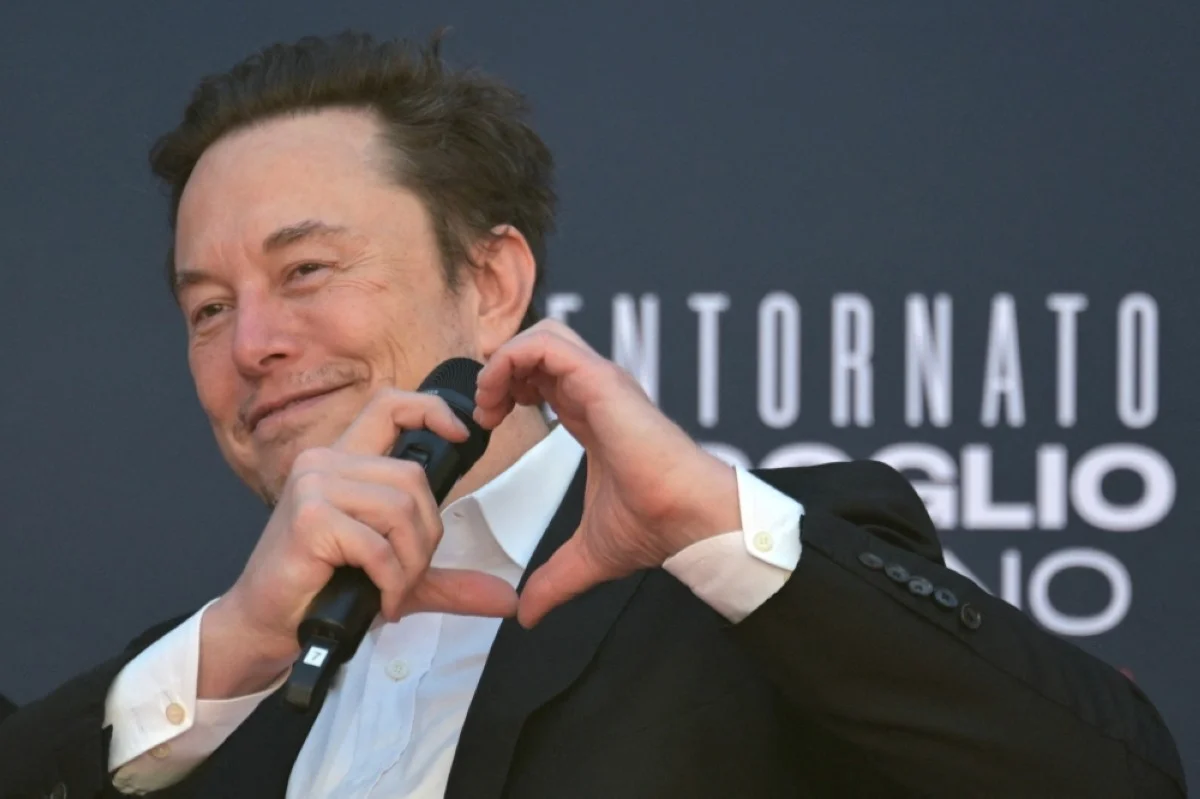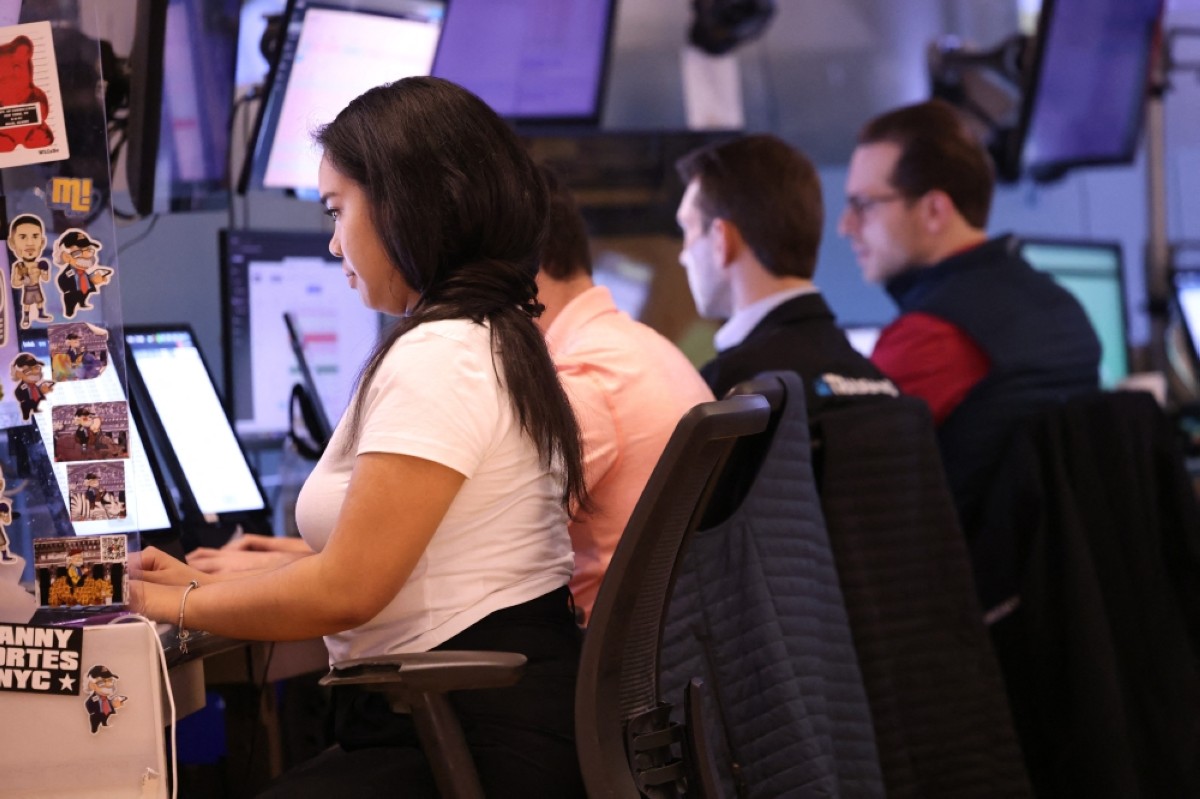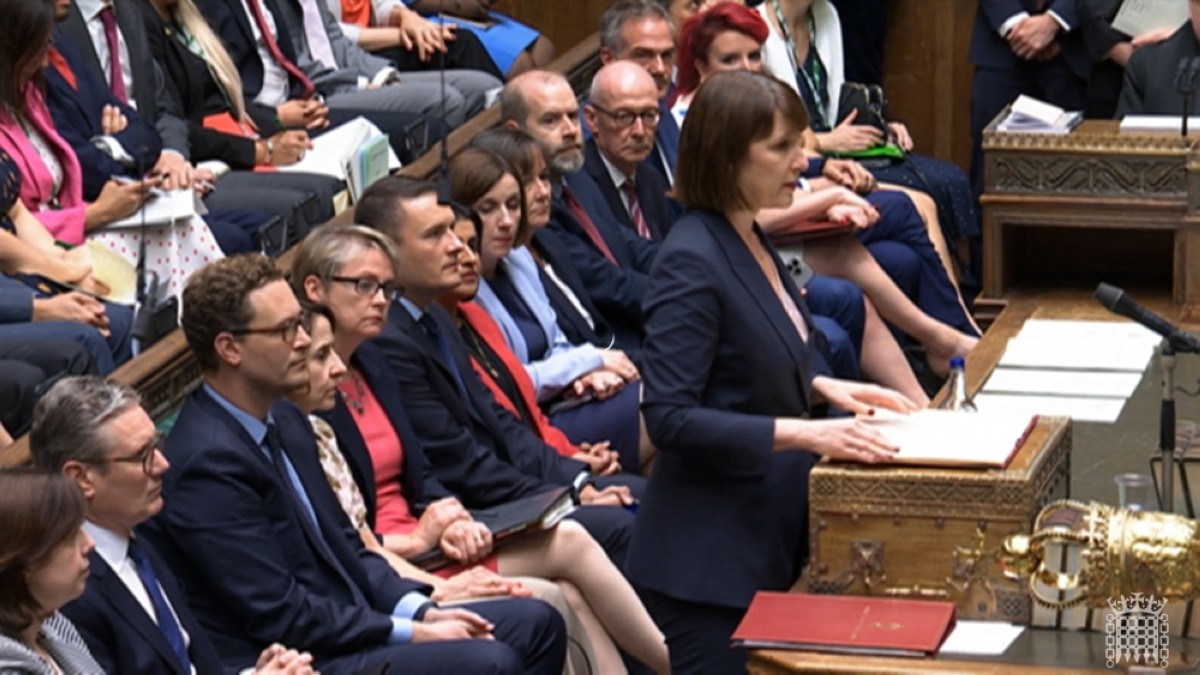EU launches illegal content probe into X
BRUSSELS: The EU announced “formal infringement proceedings” against Elon Musk’s X platform on Monday, under a law cracking down on illegal online content, after identifying disinformation related to Hamas’s Oct 7 attack in Zionist entity.

ROME: X CEO Elon Musk makes a heart with his hands during the Atreju political meeting organised by the young militants of Italian right wing party Brothers of Italy (Fratelli d'Italia) on December 16, 2023 at the Sant'Angelo Castle in Rome. -- AFP.
The action against the company formerly known as Twitter is the first against a major online platform since Brussels implemented the Digital Services Act (DSA), a sweeping piece of European Union legislation that strengthens online companies’ responsibility for content moderation.
“Today’s opening of formal proceedings against X makes it clear that, with the DSA, the time of big online platforms behaving like they are ‘too big to care’ has come to an end,” said the bloc’s digital enforcer, EU commissioner Thierry Breton. “We will now start an in-depth investigation of X’s compliance with the DSA obligations concerning countering the dissemination and amplification of illegal content and disinformation in the EU, transparency of the platforms and design of the user interface.”
The European Commission said a preliminary information-gathering investigation it launched against X in October, which included looking at “the dissemination of illegal content in the context of Hamas’ terrorist attacks against Zionist entity”, led to Monday’s probe. On the basis of that information, “the Commission has decided to open formal infringement proceedings against X under the Digital Services Act”, it said.
The formal probe will examine four areas: the dissemination of illegal content; the effectiveness of X’s efforts to combat disinformation; suspected restrictions on giving researchers access to its data; and suspected deceptive practices—known as “dark patterns”—related to its Blue Tick subscription product. In the event of proven infringements, the DSA carries penalties that can include fines going up to six percent of an online company’s global revenues. For serious and repeated violations, the EU can ban a platform operating in the 27-nation bloc.
The commission said that, under the formal probe against X, it would now “continue to gather evidence, for example by sending additional requests for information, conducting interviews or inspections”. It noted that the proceedings gave it powers to order X to undertake interim or remedial steps, pending the conclusion of the probe. There is no deadline for the proceedings to wrap up. Weeks after starting its initial information-gathering exercise against X, the commission also launched preliminary investigations along the same lines against TikTok, YouTube and Facebook owner Meta.
Brussels back in September raised concerns over X’s disinfo-fighting capacities after noting its bad score in that regard in a pilot study of several platforms. Since buying Twitter for $44 billion in October 2022, Musk has gutted its content moderation staff, and reinstated accounts of banned extremists and conspiracy theorists. He has got rid of the platform’s system for verifying high-profile users, replacing it with a subscription blue tick offer open to any willing to pay. Musk rebranded the company X, with ambitions of turning it into a multi-service platform to include identity verification and payment transactions in the mould of China’s WeChat.
Last month, he grossly insulted advertisers who have abandoned his platform and declared a tweet espousing an anti-Semitic conspiracy theory to be the “absolute truth”. According to information provided to AFP by market data analysis company SensorTower, as many as half the top 100 US advertisers the company had in October 2022 have already stopped spending altogether on X. Musk’s company is now worth less than half of what he paid for it—around $19 billion, according to internal documents sent to staff and reported by tech publication The Verge. — AFP.











